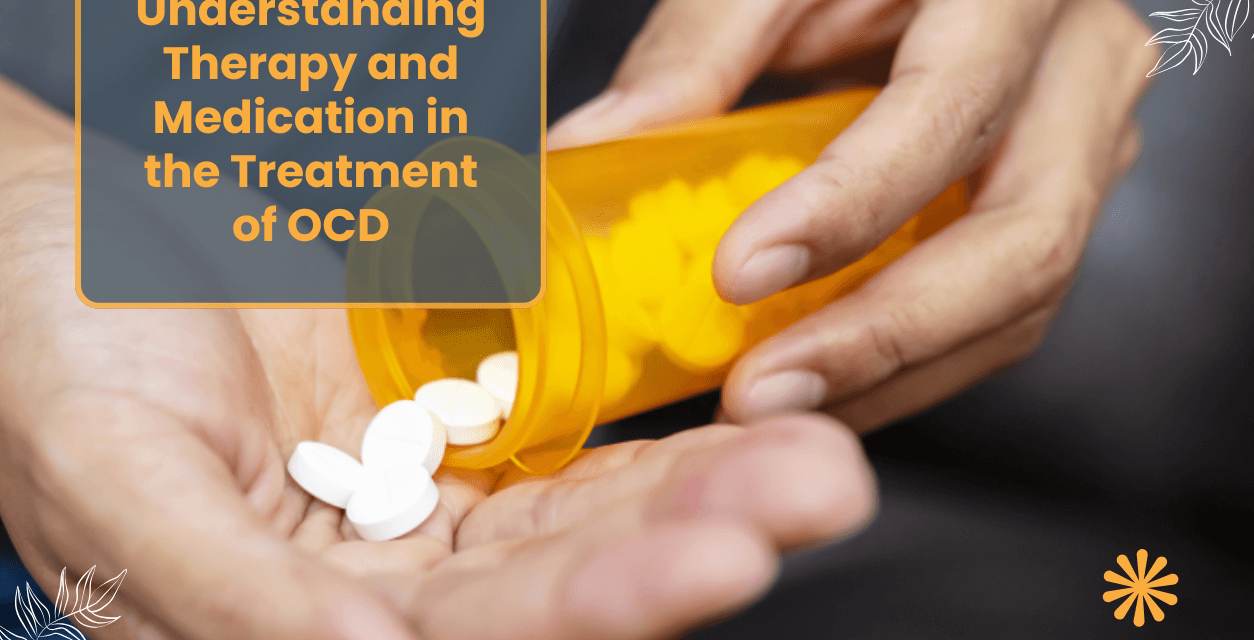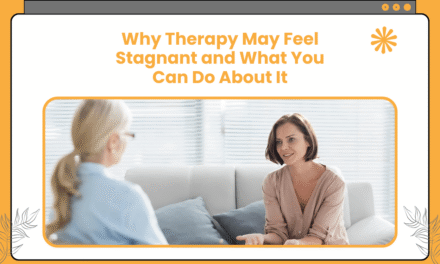You wash your hands again. And again. You check the door lock for the fifth time. Still, you cannot stop. It feels endless. If only you could break free.
This is the reality of Obsessive-Compulsive Disorder (OCD). It drains energy. It steals time. But the good news is clear. The right treatment of OCD can change everything.
What is OCD?
OCD is a mental health condition. It brings unwanted thoughts, called obsessions. These unwanted recurring thoughts bring fear and anxiety. So to reduce the discomfort caused by such obsessions, people with OCD engage in repetitive behaviours. These are called compulsions.
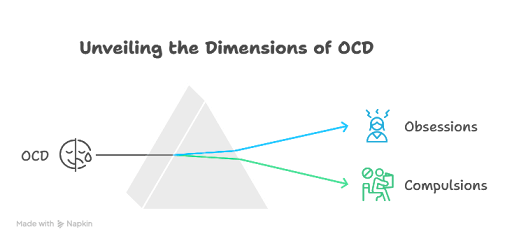
For instance, if a person has obsessions around germs. He might worry about germs and then repeatedly wash their hands after he touches something or even when he doesn’t touch anything. Or someone can get obsessive thoughts about leaving the stove on and constantly check it. These behaviours give very temporary relief but do not resolve the underlying issue. And what seems like simple habits can quickly interfere with a person’s daily life, work, and relationships.
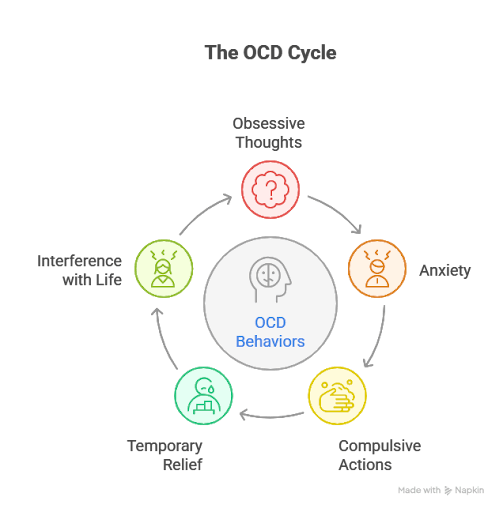
Why Does OCD Need Attention?
OCD is not just about your habits. It is not a funny quirk or just a personality trait. It is an actual mental health disorder that needs to be treated. And without any professional or medical help, it can grow worse.
You may spend hours repeating the same actions. You may feel constant guilt or fear. Life begins to shrink. The first step is learning how to treat OCD. Once you know the options, you can move toward healing.
Top 3 Most Common Treatment Methods for OCD
When people want to learn about how to treat OCD, physicians typically suggest a combination of therapy, medication, or both. Let’s look at the three most effective techniques to treat OCD:
1. Therapy for OCD
One of the most trusted OCD treatments is undoubtedly therapy. The most effective type for treating OCD is Cognitive Behavioral Therapy (CBT). Within CBT, there is a special method called Exposure and Response Prevention (ERP).
ERP isn’t something most people can just do on their own. That’s where the therapist comes in. The therapist’s job is to make sure the steps are safe and manageable. They push just enough to help, but not so much that it feels impossible. They also guide you in learning healthier ways to cope with anxiety in the moment.
The idea is easy to understand. You slowly face the fear while resisting the ritual. For instance, if you normally wash your hands ten times, your therapist may help you reduce it to five. Later, you might bring it down to three. With practice, the urge to wash hands, in this case, becomes less powerful. And the anxiety starts to fade.
Over time, your brain learns that nothing terrible happens when you stop washing your hands repeatedly. This therapy reduces the power of compulsions so that you can get more control over them.
2. Medication for OCD
Another way of treating OCD is with medicine. Doctors often prescribe SSRIs. These are antidepressants. They balance brain chemicals and reduce obsessive thoughts.
Obsessive-compulsive disorder medicine does not erase OCD. But it makes symptoms easier to manage. With a clearer mind, therapy to treat OCD becomes much easier to do.
3. Combination of Therapy and Medicine
Obsessive-compulsive disorder treatment works best when medicine and therapy go together. Medicine lowers the intensity, while therapy gives you tools to fight back. This combined plan is one of the most effective treatments for OCD.
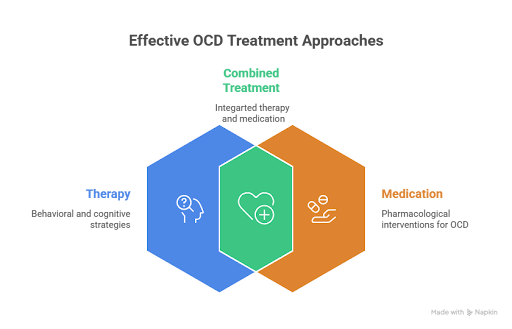
Other Helpful Supports
There are also smaller steps that help. Some people join support groups. Others use mindfulness to calm racing thoughts. Exercise and sleep also improve mental health. These are not replacements for care. But they make formal obsessive-compulsive disorder treatments stronger.
No two people are the same. Some need more therapy. Others need stronger compulsive disorder treatment with medicine. The right plan comes from a doctor or therapist. It may take time. You may try more than one method. But do not lose hope. Many people find relief. Balance is possible.
Final Thoughts
OCD feels heavy. It can feel endless. But it is not permanent. If you or someone you love struggles with OCD, do not lose hope. With the right support, patience, and treatment plan, OCD can be greatly diminished. Recovery is not about erasing OCD completely. It is about learning to manage it and living a healthier and calmer life.

